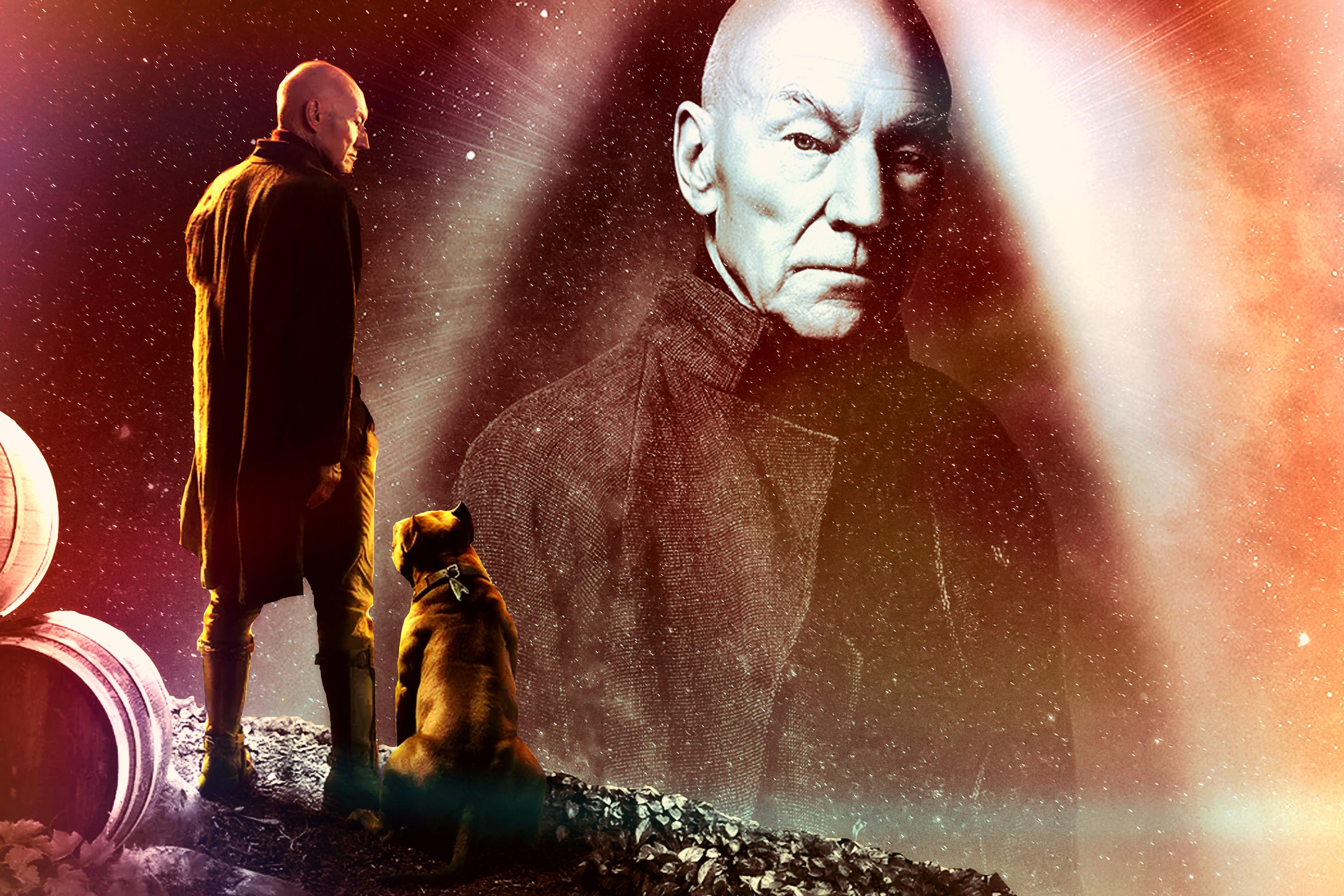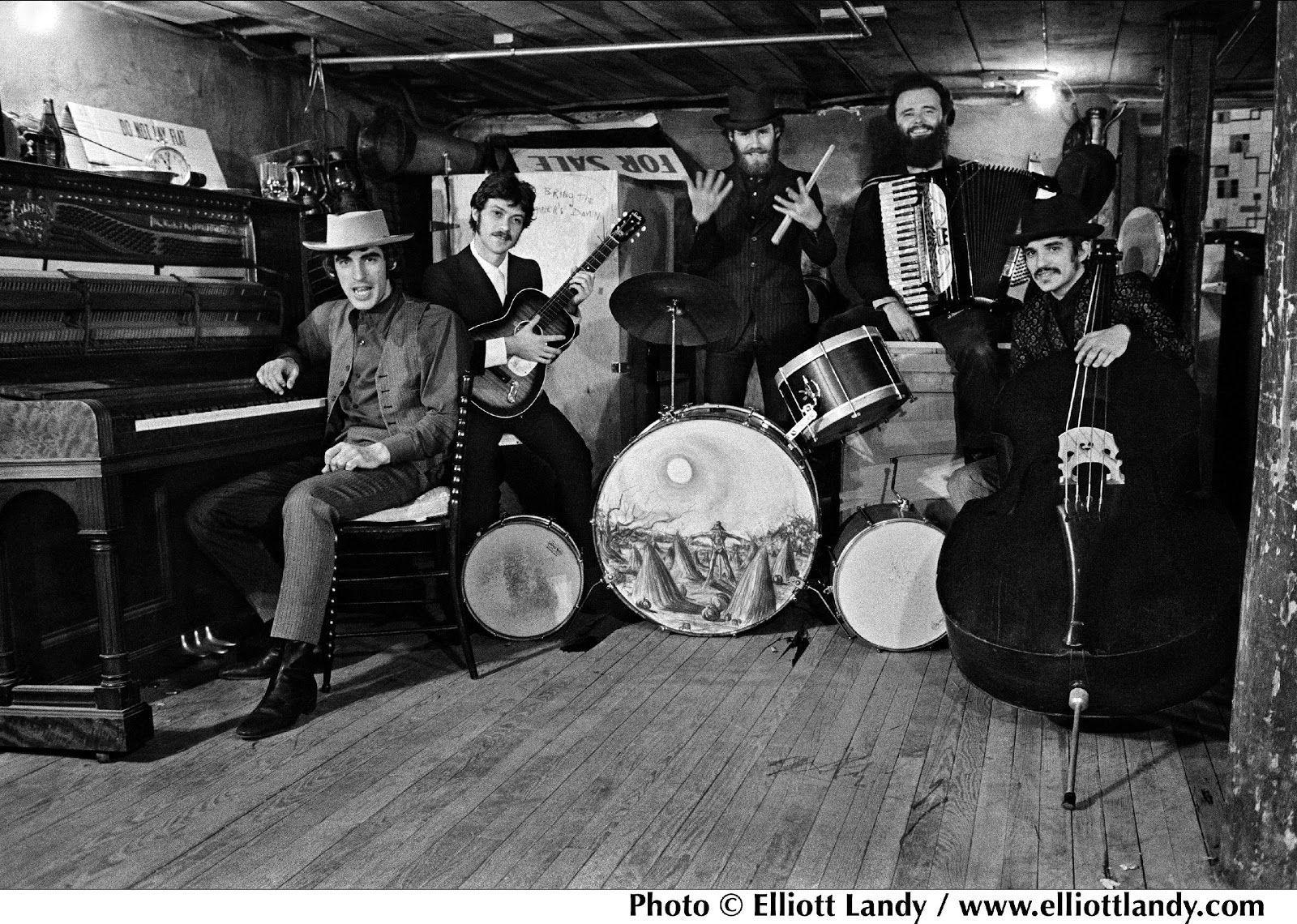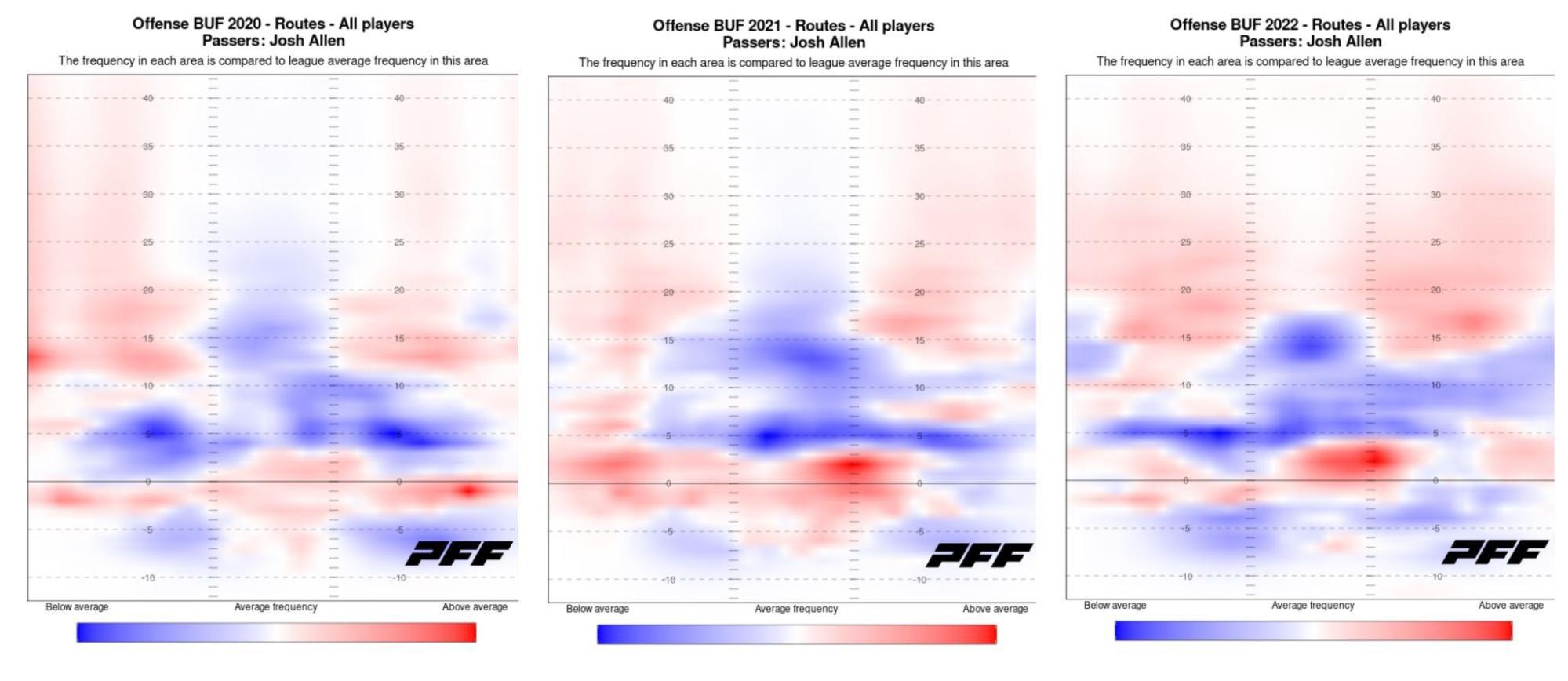

It’s been more than 20 years since two Star Trek TV series were active at the same time, a state of affairs that spanned most of the 1990s but ended when Deep Space Nine went off the air in June 1999. It’s been nearly that long since Patrick Stewart last reprised his role as Jean-Luc Picard in 2002’s Star Trek: Nemesis, the final film to feature the cast of The Next Generation. Star Trek: Picard, which went live on CBS All Access on Thursday, ends both of those droughts, placing an iconic character from the franchise’s past at the center of a series that departs from the traditional Star Trek TV template.

When we parted with Picard in the last scene of Nemesis, he was on the Enterprise, listening to Data’s android “brother” B-4 sing “Blue Skies.” When we glimpse him again in the first scene of Picard, he’s back on the Enterprise, “Blue Skies” is still on, and he’s playing poker with Data, as he did for the first time in The Next Generation’s last scene. But something seems off: This time, Bing Crosby is singing the song, and Data draws five queens. It’s a dream, one that starts sweet but turns sour as Picard drifts back toward the waking world.
“The dreams are lovely,” Picard muses minutes later. “It’s the waking up that I’m beginning to resent.” We soon see why. Picard picks up in the year 2399, 20 years after Nemesis. That makes it the latest entry in the Star Trek timeline, save for a few time-travel episodes of series set in earlier eras. The hero who saved Earth in First Contact (which also started with a nightmare) is an “old codger” who insists he’s “staying as far from it all as I can.” When an interviewer introduces him as Admiral Jean-Luc Picard, he interjects, “Retired.” A receptionist at Starfleet doesn’t know who he is. Picard has been put out to pasture: He putters about his French château with a dog named “Number One,” seemingly content—but really, resigned—to grow grapes, write about history, and reminisce about better times. He’s come close to convincing himself that he likes his low-profile life, but his subconscious still sends him to the stars.
Picard didn’t take off his uniform because he reached retirement age. He left Starfleet over a fundamental disagreement stemming from a tragedy that took place 14 years before the events of Picard. When a supernova threatened the home world of the Romulans (a cataclysm referenced by an elderly Spock in the 2009 blockbuster Star Trek), Picard helped convince the Federation to assist its longtime antagonists in evacuating the planet. Picard left the Enterprise to command the rescue armada, which was massing over Mars. But the rescue was derailed by rogue synthetics on the surface, who revolted for unknown reasons and destroyed the fleet and the shipyards, producing a death toll in excess of 92,000. In the wake of that disaster, the Federation banned synthetics, and Starfleet abandoned its effort to rescue the Romulans. Picard condemned both decisions and resigned in protest. Ambushed by the interviewer, who demands to know why he left Starfleet, he snaps, “It was no longer Starfleet.”
In some ways, Picard is still Picard, but Starfleet’s betrayal and his years away from the helm have affected him, too. “After so long, sometimes I worry you’ve forgotten what you did, who you are,” says one of Picard’s companions, who exhorts him to “be the captain they remember.” In the early episodes, Picard takes a few faltering steps toward becoming that captain again. When Dahj (Isa Briones)—a secret synthetic who doesn’t know she’s not human—appears at his château and asks him for help, his long-dormant sense of duty sends him back to Starfleet HQ. The brass dismisses his story about lifelike synthetics and Romulan raids as “the pitiable delusions of a once-great man desperate to matter,” so he sets off on an unsanctioned mission, aided by a scientist who studies synthetics (Alison Pill), a former Starfleet colleague who has her own agenda (Michelle Hurd), and an ex-Starfleet pilot (Santiago Cabrera) who agrees to take him off-world in search of the synthetic maker who may have created Dahj and her “sister” from Data’s remains.
Picard occasionally nods at The Next Generation: In addition to the dog’s name, there’s a hologram of the Enterprise in the lobby at Starfleet, a brief visit to Picard’s artifact-filled archives, and a subplot about the Borg, as well as a musical phrase from the TNG theme song that pops up in Picard’s. The new series will feature a few appearances from Trek vets other than Brent Spiner, including Marina Sirtis, Jonathan Frakes (who also directs two episodes), and Voyager’s Jeri Ryan. It’s impossible for fans of Stewart’s first Star Trek series not to feel a fresh twinge of nostalgia each time the old admiral makes a cup of Earl Grey.
But Picard makes it clear early on that the new series is not a Next Generation reboot. “This is no longer your house!” a senior officer thunders at Picard when he visits Starfleet. In another scene, one of Picard’s companions tells him, “You need a crew. Riker, Worf, La Forge.” Picard shoots down the idea. “I thought about it, and they would do it in a heartbeat,” he says. “And that’s precisely why I cannot ask them.” Maybe Frakes, Michael Dorn, and LeVar Burton would have signed up for a second tour. But, Picard continues, “I do not want to have to go through that again.”
Neither did Stewart, who said he was done with Picard post-Nemesis. The actor initially planned to reject the pitch for Picard, but he was hooked by the chance to star in a different sort of Star Trek. Unlike the last four Star Trek series, Picard is named after a person, not a ship or a space station. (Not until the last of the three episodes made available to reviewers in advance does Picard get a chance to say, “Engage.”) And although that person is someone we know, he’s not the diplomatic, mostly stoic crusader of old. The 79-year-old Stewart moves gingerly and has a hoarseness to his voice that suits the sidelined admiral. Picard is still cerebral and idealistic, but when the series starts, he’s remorseful, beaten, and bitter. He’s also a little less remote and reserved, freed from the solitary life of commanding a crew. This version of Picard is a private citizen, and we wonder whether he’s up to the task of saving the galaxy again.

By Star Trek standards, Picard appears uncomplicated and down-to-earth (literally), relatively unencumbered by impenetrable lore, alternate timelines, or detours to the mirror universe. Morally speaking, though, the series is cloudier than the utopian TNG tended to be. Picard questions Starfleet’s judgment (admittedly, not for the first time), but he’s not necessarily right; Starfleet’s side of the story is persuasive, too. In typical Trek fashion, Picard is partly inspired by real-world events: The essential struggle of Star Trek, isolationism versus cooperation, remains resonant in the era of Brexit and President Donald Trump.
For now, the Star Trek film franchise that Stewart once anchored is dormant, although a fourth film in the rebooted timeline is reportedly in the pipeline and Quentin Tarantino has inspired a separate Star Trek spinoff film (which he’s no longer planning to direct). On the small screen, though, the franchise is proceeding at maximum warp. Picard was cocreated by Alex Kurtzman, who’s been writing and producing Star Trek movies and TV projects since the 2009 reboot, along with fellow Discovery veterans Kirsten Beyer and Akiva Goldsman and the novelist and screenwriter Michael Chabon, who also serves as showrunner. The series has already been renewed for a second 10-episode season, and Stewart has suggested that the story would support a third.
For Kurtzman, who signed a five-year overall deal with CBS in 2018 to oversee Star Trek’s TV expansion, the prime directive seems to be going boldly where Star Trek hasn’t gone before. Discovery, which debuted in 2017 and is expected to return for a third season this year, is the first fully serialized Star Trek TV series. In that respect, Picard follows in Discovery’s footsteps, but it also colonizes new territory. Even by the standards of the philosophical franchise, Picard is quiet and contemplative, a Logan-esque character study centered on a senior citizen who operates outside of Starfleet.
Discovery and Picard will likely be joined later in 2020 by Star Trek: Lower Decks, an animated series that will mark the franchise’s first foray into comedy. CBS is also developing a spinoff series starring Michelle Yeoh’s Discovery character, Philippa Georgiou, which will focus on Starfleet’s shadowy defenses and intelligence agency, Section 31. The Star Trek TV portfolio also includes Short Treks, an anthology series whose 10- to 20-minute episodes tie into other Star Trek properties, and The Ready Room, a Facebook Live aftershow hosted by Wil Wheaton.
At some point, Trek fatigue may set in, but based on the first few episodes, coaxing Stewart back to Star Trek—if not quite to the captain’s chair—was a worthwhile, non-facepalm-provoking endeavor. “Why are you stalling, Captain?” dream Data asks Picard in the first scene of the series. “I don’t want the game to end,” Picard replies. CBS doesn’t want the onslaught of Star Trek TV to end: In 2018, CBS TV Studios president David Stapf said, “My goal is that there should be a Star Trek something on all the time on All Access.” With Picard, the network comes one series closer to making it so.

